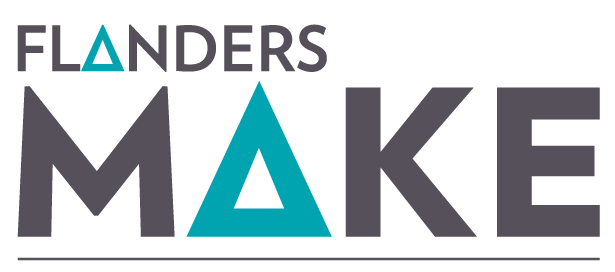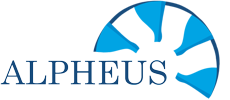Prof. dr. ir. Jeroen De Kooning
Biography
Jeroen De Kooning (1987, Kapellen, Belgium) is assistant professor at the Faculty of Engineering and Architecture of Ghent University since 2019. He received the Master of Science and Ph.D. degrees in electromechanical engineering from Ghent University, Belgium, in 2010 and 2015 respectively. He conducted research on optimal current waveform shaping techniques for permanent magnet synchronous machines, optimal control and design of renewable energy drivetrains, maximum power point tracking algorithms and techno-economic optimization using co-design and parametric models. His present research interests include modelling, optimization and control of mechatronic systems, drivetrains and industrial machines in an Industry 4.0 context, with a particular interest in digital twins. He is a member of the Dynamical Systems and Control (DySC) research group and the FlandersMake@UGent MIRO core lab within the Motion Products cluster. He is a senior member of the IEEE and serves in the editorial board of MDPI Processes as topic editor for Energy Systems. In 2022, he was a visiting professor at the Lappeenranta University of Technology, Finland.
![]() ORCID id: orcid.org/0000-0002-0358-4350
ORCID id: orcid.org/0000-0002-0358-4350
![]() LinkedIn: https://www.linkedin.com/in/jeroendekooning/
LinkedIn: https://www.linkedin.com/in/jeroendekooning/
![]() UGent Phone Book: https://telefoonboek.ugent.be/nl/people/802000856262
UGent Phone Book: https://telefoonboek.ugent.be/nl/people/802000856262
Vacancies
PhD student position: 'Online efficiency maximization of drivetrains using a Calorimeter in the loop' Download job descriptionResearch
I'm currently involved in 7 research projects and supervise the research of 8 PhD students. Below you can find some more information on the running research projects.
CADAIVision (Flanders Make SBO) - 'Motion visualization and analysis through digital twins based on CAD, AI and Vision'

The goal of CADAIVision is to create a new and validated architecture for realizing a digital twin of a motion system founded upon a CAD-based co-simulation. The project leverages the combined strengths of CAD, AI and vision. By doing so, complex mechatronic phenomena (flexibility, dynamic friction, non-linearity, ...) are incorporated through flexible multi body models, parameter tracking, data driven (AI) models, leveraging on the data richness of both discrete sensors and vision.
ALPHEUS (EU Horizon 2020) - 'Augmenting grid stability through Low-head Pumped Hydro Energy Utilization & Storage'

The goal of ALPHEUS is to develop innovative low-head pumped hydro storage systems. Our work is focused on the Power Take-Off (PTO) system. It is our aim to realize a cutting edge PTO hardware and control architecture that maximizes efficiency under variable power operation, while simultaneously ensuring the strong dynamics needed to provide ancillary services to the grid. For this, we will leverage our experience with the design and control of wind turbine drivetrains.
Work-Drive (Flanders Make SBO) - 'Modular, autonomous work-drive architectures'

Vehicles with a working function are common in agriculture, logistics and the manufacturing industry. Current solutions for automated work and drive architectures lack (1) collaborative motion, where the vehicle and working function optimally move together, and (2) modularity to allow interchanging multiple working functions and the corresponding modular safety architecture. The goal of Work-Drive is to deliver a validated modular, cost-effective and safe architecture for a variety of autonomous working functions on different vehicles, capable of maximum collaboration. The focus of our research group is on the development of an adaptive low level control system ensuring intra-module collaborative motion and disturbance rejection. We validate our research on a linear track setup equiped with a robot arm.
BEOWIND (Energy Transition Fund) - 'BElgian Offshore WIND energy parks: Tools to enhance the provision of ancillary services, the stability of the grid and the lifetime of the infrastructure'

In the near future, the Belgian offshore wind parks will represent a large part of the Belgian electric power generation. It is desirable or even necessary that offshore wind parks, be-sides delivering renewable power, also contribute to the operation of the electric power grid. The goal of BEOWIND is to improve the operation of wind turbines by developing an optimised control system to allow the provision of grid support, taking into account the turbines dynamics and lifetime. The optimised control system replaces the traditional controller and adds the following functionalities: Inertial response, primary frequency control, voltage control, stability improvement and lifetime assess-ment and predictive maintenance.
CO2PERATE (VLAIO SBO) - 'All renewable CCU based on formic acid integrated in an industrial microgrid'

The main objective of CO2PERATE is the development of technologies for the conversion of CO2 to value-added chemicals using catalysis and renewable energy. To benchmark, compare and develop the various technologies, the formation of formic acid is selected as the initial target. Our focus in CO2PERATE is on the development of an intelligent process control to operate these processes flexibly, dependent on the availability of renewable energy and the condition of the smart grid.
Teaching activities
Electrical Measurement Techniques (2nd year Bachelor of Science in Industrial Engineering)The course on Electrical Measurement Techniques teaches about the measurement of electrical quantities such as voltage, current, impedance, power and energy. The measurement of rotational speed, position and torque of rotating shafts is discussed as well. Numerous measurement methodologies are presented, of which the accuracy, range, limitations and required signal conditioning are discussed.
Advanced Drives (Master of Science in Industrial Engineering: Machine- and Production Automatisation)
The course on Advanced Drives teaches about the operation, modelling, use and control of Permanent Magnet Synchronous Machines (PMSM), switched reluctance machines, stepper motors, linear motors, servo drives and shaft synchronisation.
Digital Twins
I teach the course 'Digital Twins' in the Advanced Master 'Smart Operations and Maintenance in Industry', a joint programme between KULeuven and Ghent University.
Climate Summerschool
I teach a course on 'Renewable Energy' in the Climate Summerschool at Ghent University. This course discusses the current technological status of renewable energy sources, recent evolutions and a future outlook.
Contact
Prof. dr. ir. Jeroen De Kooning
Dynamical Systems and Control group (DySC)
Department of Electromechanical, Systems and Metal Engineering
Faculty of Engineering and Architecture, Ghent University
E jeroen.dekooning@ugent.be
Sint-Martens-Latemlaan 2B
8500 Kortrijk, Belgium
T +32 5 624 12 15
Technologiepark-Zwijnaarde 131
9052 Gent, Belgium
T +32 9 264 56 99